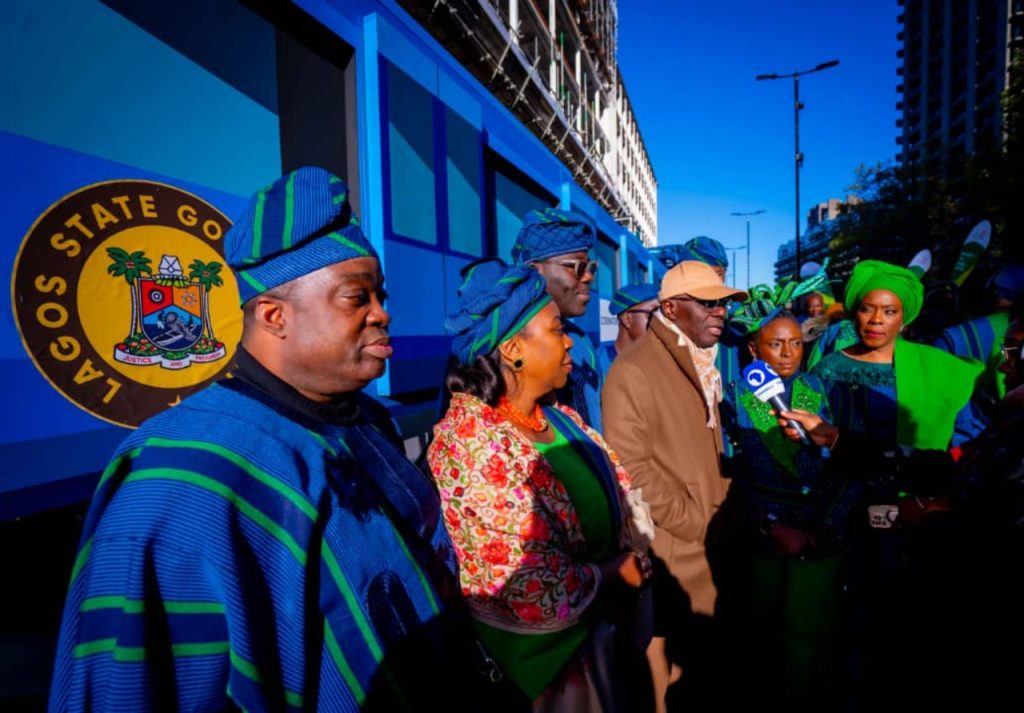Lagos means different things to different people across the world. To some, it is the heartbeat of Africa’s economy, the place where everything in Africa goes to ‘ make it’. At the same time, others see it as a missed opportunity to be more than what it currently is. We can offer many other descriptions of what Lagos is, but one thing most people will agree on is that Lagos is unlike anywhere else in the world.
Lagos is Nigeria’s biggest economy and is responsible for around 20 percent of the country’s gross domestic product (GDP). If Lagos were a country on its own, it would be in the top 10 economies in Africa. Lagos is Nigeria’s commercial capital and is known for its high energy and vibrancy, with a significant influence on commerce, entertainment, technology, education, politics, tourism, art, and fashion across the continent.
This year, Lagos was featured as the first African representative in the 800-year-old Lord Mayor’s Show in London, with organisers saying Lagos was invited to participate in the London procession because of the state’s “growing economic prominence.” Lagos Governor, Mr. Babajide Sanwo-Olu, said his state’s participation was an invitation to the world to explore “the myriad of opportunities” available in Lagos. “Lagos isn’t just open for business—it’s open for transformative, groundbreaking projects that shape the future,” he added.

For context, the Lord Mayor’s Show is one of the most iconic events in London. It is an annual ceremony that dates back to the 13th century, and it is held to mark the first day in office of the Lord Mayor of the City of London (not to be confused with the Mayor of London, who has a complementary but very different role). The event is the ceremonial procession from Guildhall (the ceremonial and administrative centre of the City of London) to the Royal Courts of Justice, where the new Lord Mayor swears allegiance to The Crown. Basically, it is a big deal, and it is used as an opportunity to spotlight interests, investments, and partnership opportunities within the city and further afield.
For Lagos to be on this platform as a standalone entity and for the accompanying messages to follow suggests an intentional attempt to push a strategic narrative about Lagos as a powerhouse in its own right. Historically, the story of Lagos has been embedded in the wider Nigerian story. So this Lagos-specific narrative represents one of the most significant global showcases of Lagos in recent times.

It is not uncommon for cities and states to pursue their own interests. Cities like Paris and New York are known to have their own unique narratives that are independent of the wider narratives of the countries they represent. Incidentally (or perhaps intentionally), The Lord Mayor plays a key role in ensuring that the City of London remains a global hub for finance and professional services, commerce, and culture. Perhaps Lagos is making a play to be mentioned in the same breath as these cities?
Also, when you consider that Nigeria’s new President Bola Ahmed Tinubu (from the same political party as the Lagos state governor) has made a lot of consistent noise about his desire to open Nigeria to increased foreign investment, the message that the country’s biggest economy and shining light is open for business can be seen as a call to action for global investors.
However you look at it, there is no shortage of opportunity in Lagos. There is also no shortage of challenges and hindrances to success. For Lagos to truly fulfill its potential, it will need more than international spotlighting. It will need to address some of its well-documented challenges, including those listed below.
- Infrastructure deficits: Nigeria’s infrastructure, in general, is underdeveloped, which can make it difficult to transport goods and services. Lagos State will need to make significant progress on this front to make it easier for investors to come in. Otherwise, the cost of developing their own infrastructure, such as generators and water pumps, may become a hindrance to potential investors.
- Currency volatility: The Nigerian naira is volatile, which can make it difficult to predict returns on investments. This exposes investors to undue currency risk and can also be a hindrance to making any significant long-term commitments.
- High taxes: Nigeria has a high corporate tax rate, which can make it difficult for businesses to make a profit. The head of a tax reform committee set up by the new administration recently announced that the new regime is aiming to reduce the number of taxes levied by federal and state governments from more than 60 to fewer than 10. This would be a very helpful development if it happens.
- Lack of skilled labour: While Lagos fares better than most of Nigeria, the shortage of skilled labour makes it difficult to find qualified workers. For companies looking to succeed and grow in Lagos, they have to spend the required time properly vetting candidates to be hired and prioritise getting referrals from their professional network to find the right talent.

Despite these challenges, Lagos still represents a very exciting and promising prospect. With a rapidly growing population, a burgeoning middle class, and a strategic location in West Africa, Lagos presents an attractive landscape for investors seeking high-growth opportunities.
- Real Estate: Real estate remains a cornerstone of investment in Lagos, driven by urbanisation, population growth, and increasing demand for housing and commercial spaces. Investing in residential properties in high-growth areas like Lekki, Ibeju-Lekki, and Ajah can yield substantial returns over time. Commercial real estate, including office spaces, retail spaces, and warehouses, also offers lucrative prospects due to Lagos’s thriving business environment.
- Technology and Innovation: Lagos has emerged as a hub for technology startups and innovation, driven by a young, tech-savvy population and a supportive entrepreneurial ecosystem. Investing in tech startups or innovation hubs can provide access to high-growth opportunities in areas such as fintech, e-commerce, and agritech.
- Infrastructure and Construction: As Lagos continues to expand, investments in infrastructure development, including road construction, housing developments, and commercial complexes, can be profitable. The government’s commitment to infrastructure projects creates opportunities for private sector involvement in financing and construction.
- Agribusiness and Agriculture: While Lagos is an urban centre, there are significant opportunities for agricultural investments in the state’s rural areas. Poultry farming, fish farming, and agribusiness in areas like Epe and Ikorodu offer promising avenues for investors seeking exposure to the growing food and agriculture sectors.
- Tourism and Hospitality: Lagos’s vibrant culture, diverse attractions, and growing tourism industry present opportunities for investment in hotels, serviced apartments, and short-term rentals. Areas like Victoria Island, Ikoyi, Lekki, and Ibeju-Lekki are particularly attractive for hospitality investments due to their high tourist traffic and demand for accommodation.
There are so many other opportunities that make Lagos attractive and validate what seems like a push to establish itself as a global powerhouse in its own right. However, without the issues being addressed, the conversation about unfulfilled potential may linger for longer than Lagos State’s leadership may desire.
Images Source: Voice of Nigeria https://bit.ly/3Rdh3Qb and Nupo Deyon Daniel on Unsplash
